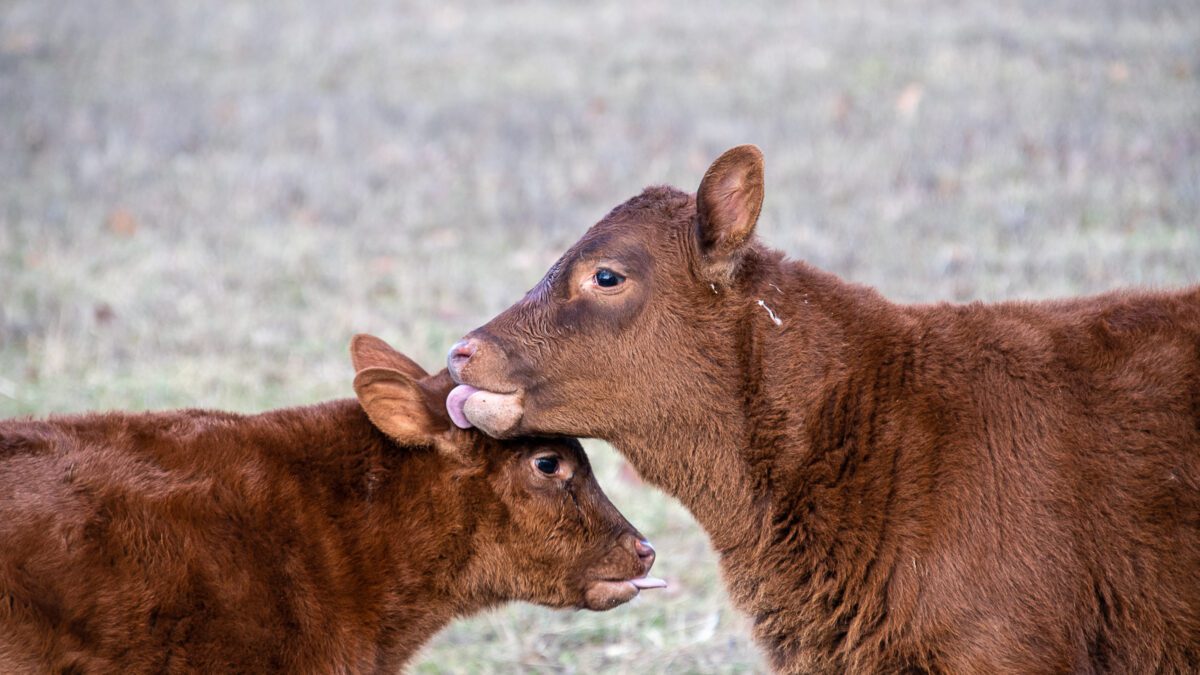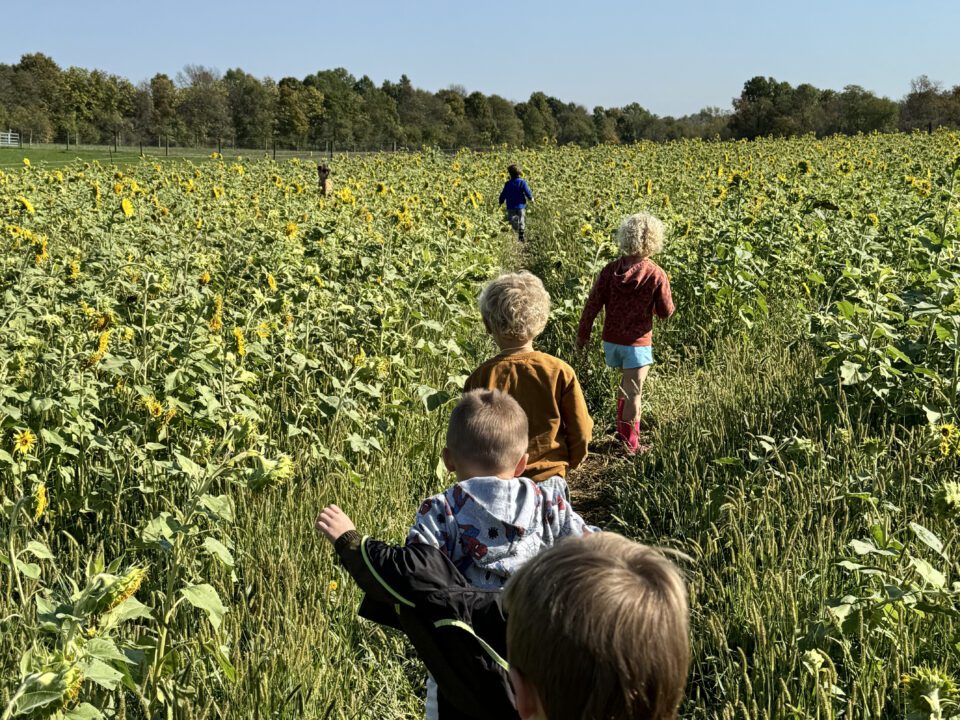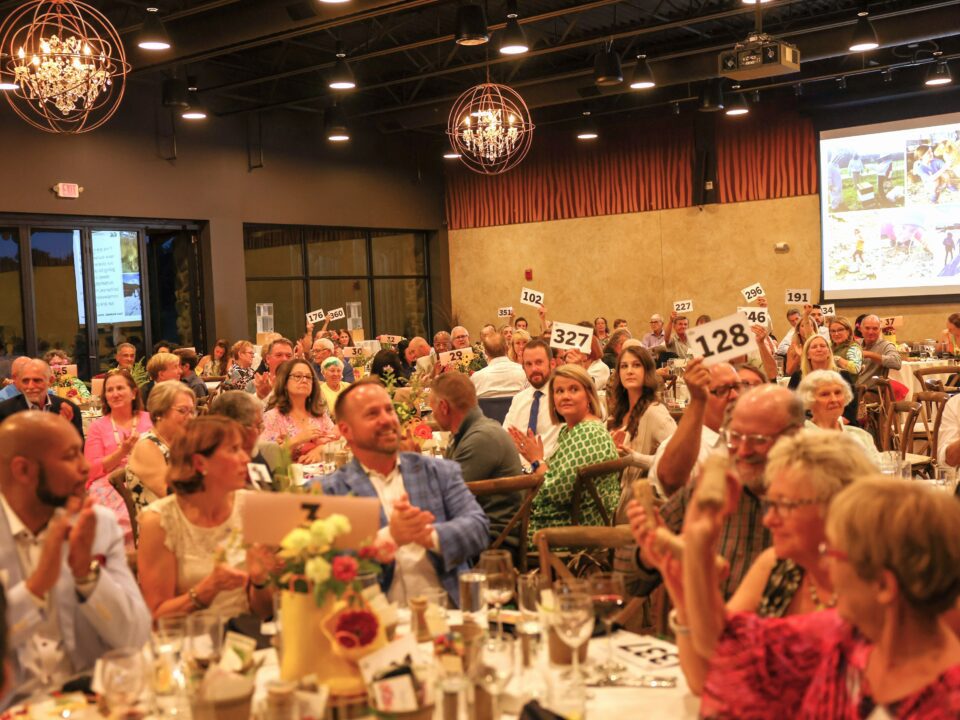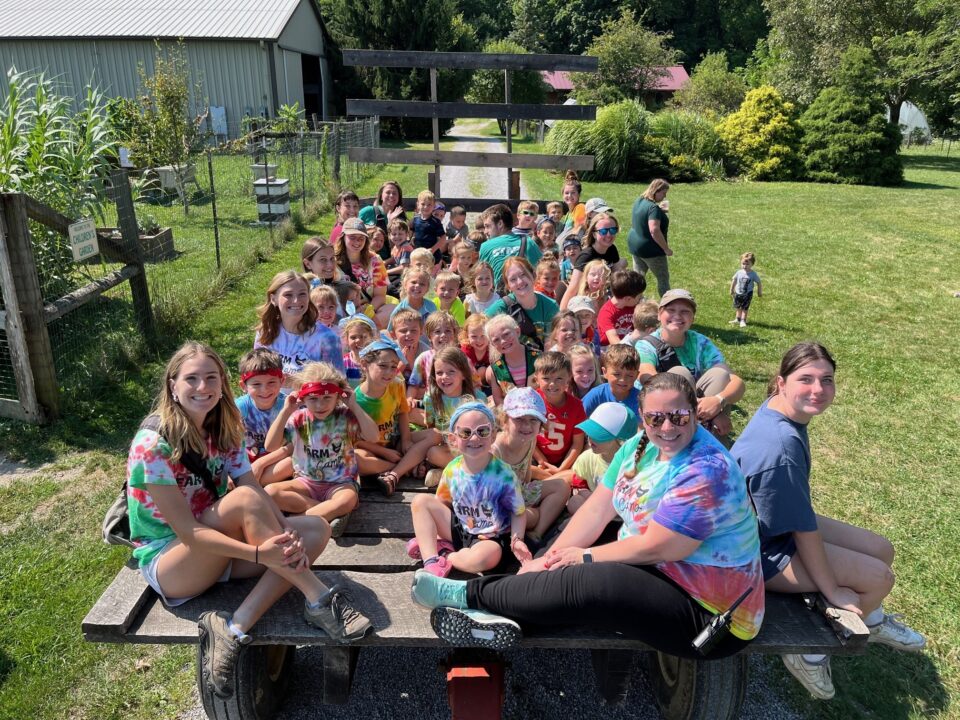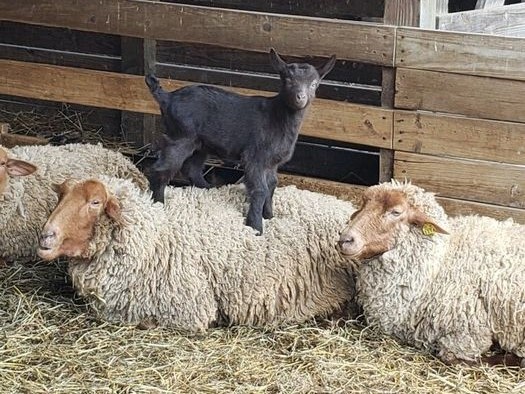
Breeding Time Again for Stratford’s Ewes and Goats
November 6, 2010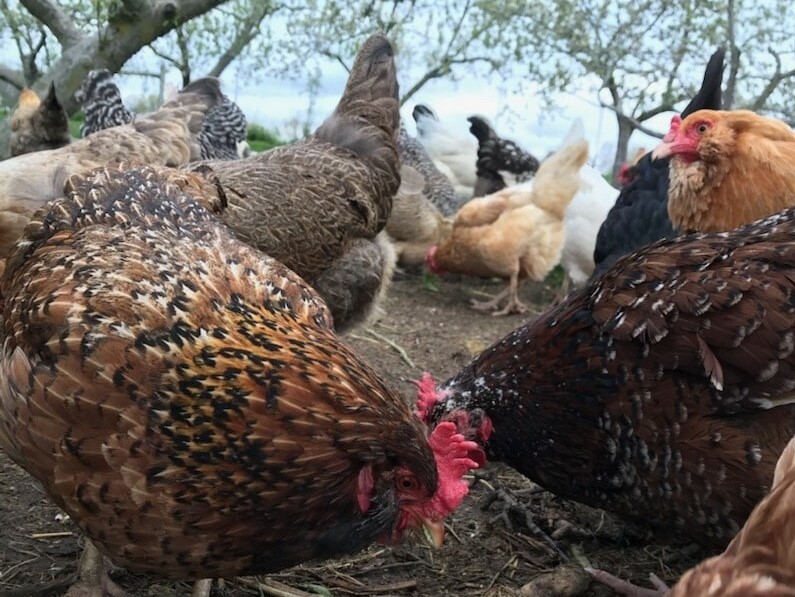
Stratford’s Happy Hens Produce Plentiful Eggs
February 5, 2011Published in The Delaware Gazette: December 4, 2010
Weather is the first thought that comes to mind when describing life at Stratford Ecological Center on Liberty Road, as so much of what happens here takes place outside. We were delighted when the weather co‐operated for the new 5th grade Sunship Earth program and school tours this fall.
I was thankful for the thick layers of dry, golden leaves when I spent a morning shadowing six youngsters and leader, during their week at Sunship Earth. We continually moved off‐trail and up and down the hillside above the stream. Journals at the ready to record their findings, the children used their cerebral powers to understand what was occurring under their feet, on the ground and over their heads.
Everything the leader shared was hands‐on. It involved team work and was reinforced with examples like soil layers and rocks stored in porcelain sinks, not quite what you would expect in the woods. It also included experiments like filtering stream water through an earth‐filled barrel to purify it, and the children responded by being fully engaged. No small achievement, considering the only stop was a snack on a fallen tree.
The afternoon was spent sitting in their own “magic” spot, with time to use their senses to realize, what in all their morning’s haste, they had never noticed around them. My feelings about the program echo those of the students: “I wish school could always be this way.” After the extensive preparations it is gratifying to know we have a winner.
The corn cobs are safely undercover, and no problems with our one‐row corn picker. Once the buckwheat dried out, we were able to remove it from the trailers in the machine shed and bag it. This allowed us to store corn in the trailers, where it will remain out of the weather all winter. The livestock have been turned out onto the corn field to enjoy the annual rye grass, corn stalks, and any fallen kernels.
The combine started up when it needed to be moved outside the machine shed during construction of a storage room for Sunship Earth materials. Unfortunately, the engine refuses to turn over now that it is time to return, and we need to engage the efforts of a neighborhood expert. All other machinery, with moving parts, has been skillfully edged into the shed. The arrangement makes for an adventurous, maze‐like walk at dusk, if you need to make your way to the apple cooler and don’t want to turn on the lights.
On Thanksgiving Day, farm intern Gabe Ross came in to do evening chores in the barn. Gabe is the son of local resident Mitch Ross, and grandson of Sheldon Ross, a long‐term Delaware Fair Board member. They have been around quarter horses and farming all their lives, but have spent very little time with calving cows! Our oldest Jersey cow, Sugar, has been looking like she was about to calve for months. She did, at 9.45 pm. on Thanksgiving night, when farmer Jeff Dickinson was out of town and Gabe was in charge.
During chores, Gabe noticed Sugar was not eating and was standing restlessly in the barn yard. He urged her into the pen under the barn and closed the gate. He decided she would likely calve that night but not immediately, and went home for his dinner. With the responsibility for the safe delivery of Sugar’s calf on his shoulders, he and his Dad returned at 10.00 pm. Sugar had just given birth, and remains of the sack still stuck to the calf’s coat as Sugar licked it off. Everything was fine despite her large size, and there was no sign of milk fever, which is caused by lack of calcium drained by the calf and initial milk production.
In order to monitor the situation Gabe settled himself into a sleeping bag and sat on a chair in the barn. He spent the night there and can attest it is a very cold barn. In the morning he milked Sugar in the pen, with the milk flowing into a wide, long bottle, which he capped with a nipple. As in humans, it is important to get the first milk, or colostrums, with its antibodies, into the newborn. It turned out the calf had drunk well during the night, as confirmed by a swollen tummy, and would not take the bottle.
On Sunday Gabe tempted Sugar, with feed, into the milking area. He found her to be a much gentler, and fast, cow to milk by hand compared to when she nursed her first‐born calf, Molasses. As a precaution, over the next couple of days Gabe used a caulking–like gun to administer a shot of calcium salt in a gel into her mouth. We are sure Gabe is destined to be a successful farmer and appreciate his extra efforts.
The calf is a female or in dairy terms, a heifer. She will likely remain on the farm as a future milk cow. We invite you to come and see our newest arrival and join us in naming her, by putting your suggestion in a pink‐covered basket located in the foyer. The farm children usually name the animals but they have graciously agreed to check the ballots and decide on a name.
Pauline Scott is a farm and nature guide at Stratford Ecological Center, 3083 Liberty Road, Delaware, Ohio 43015. Tel. 740 363‐2548. Email stratfordcenter@aol.com. Web site www.stratfordecologicalcenter.org


